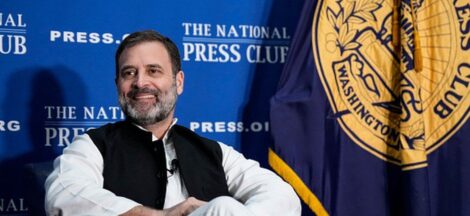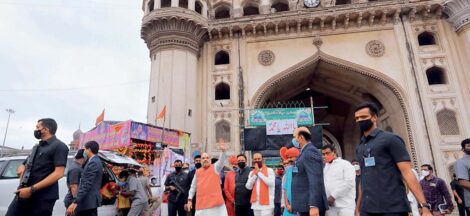By Barun Das Gupta
The Trump administration has imposed a fresh sanction on Iran and issued a peremptory diktat to “all Asian countries”, including India, to bring down Iranian oil imports to ‘zero’ by November 4. This is nothing but imposing sanctions on Iran unilaterally. It is illegal because only the United Nations has the authority to impose sanctions. But The US had imposed similar sanctions earlier also, totally ignoring the UN. No doubt, Trump thinks he can get away with his sanction this time also. He believes few countries in the world will dare defy the diktat of the mighty US and its mightier President.
The reference to “all Asian countries” is significant. Way back in May, 2012, during Barrack Obama’s presidency, Washington had imposed a similar sanction on Iran but “exempted” the European Union and Japan from its ambit. Clearly, the US attitude then was: Let everyone else suffer but not our friends and allies. That attitude remains unchanged even under Trump.
The excuse for imposing the fresh sanction on Iran is that US believes that Teheran is engaged in a ballistic missile development programme and is supporting “terrorist” organizations like Hezbollah, Hamas and Palestine Islamic Jihad which, the US would have the world believe, are threatening Israel and stability in West Asia.
Teheran has warned India that if it succumbs to US pressure and cuts down on oil import under US pressure, it will withdraw all the “special privileges” India now enjoys in Iran. Teheran has also expressed its unhappiness is not making the promised investments for the expansion of the Chabahar port in terms of the Indo-Iranian agreement of May, 2016.
The Chabahar port is extremely important for India because of its strategic location. Chabahar will give India a direct access to Afghanistan bypassing Pakistan and further into the Central Asian Republics of the former Soviet Union and even beyond. Chabahar is a $500 million project and situated just a 100 kms from Gwadar port which Pakistan has leased out to China. Chabahar port’s strategic importance has grown immensely after China built a naval base in Djibouti in the Horn of Africa. Under the India-Iran-Afghanistan Memorandum of Understanding (MoU), there will be a corridor from Chabahar to Hajigak that will cost over $20 billion. India can, under no circumstances, afford to do anything that may put the future of the Chabahar port in jeopardy.
The Trump administration has threatened that those countries which will not stop importing crude from Iran by November will themselves come under US sanction. Since it is the sole superpower, nobody can question its right to act as an international gendarme acting arbitrarily, independent of the UN.
India has meekly surrendered to the US diktat. It has already curtailed its oil import from Iran by 15.9 per cent, that is, in the first month of Washington’s ultimatum. Iran happens to be the third biggest oil supplier to India after Iraq and Saudi Arabia. India imports 13 per cent of its total crude requirement from Iran. Obviously, totally stopping Iranian crude import will be a blow to the Indian economy and its impact will be hard to cushion. It may be recalled that way back in 2012, when the US enforced a similar sanction on Iran, it adversely affected our economy and impacted the pace of our development.
Iran has told India in no uncertain terms that if it tries to substitute import of Iranian crude by sourcing from other countries like Saudi Arabia, Iraq, Russia and the US, India will forfeit the ‘special privileges’ it is enjoying now.
Indian leaders claim that Indo-US cooperation is increasing and being extended to different fields. It must be a strange sort of ‘cooperation’ in which one party always imposes its will on the other and the ‘other’ is always at the receiving end. It is the declared policy of Trump to impose higher duties on imports and to reduce outsourcing of jobs. Both will hurt India. India should have made it plain to Washington that cooperation is a two-way traffic and India will take effective steps to protect its economy. India has already signed an agreement with the US under which both countries can use each other’s airports and seaports in conflict situations. On the face of it, it is a one-sided agreement because India cannot visualize any ‘conflict situation’ in which it will need to use American sea or airports. It is the US which will get this facility when there is a ‘conflict situation’ with China.
The time has come for New Delhi to tell Washington bluntly that it cannot take a nation of 130 crore people for granted and treat it as a client State. India is a sovereign country and it cannot be bullied into accepting Washington’s diktats that go against the basic interests of the country. Indo-US relations have to develop on terms of equality and safeguarding mutual interests. (IPA Service)
The post Trump Is Treating India As A Client State appeared first on Newspack by India Press Agency.


